Blog
-
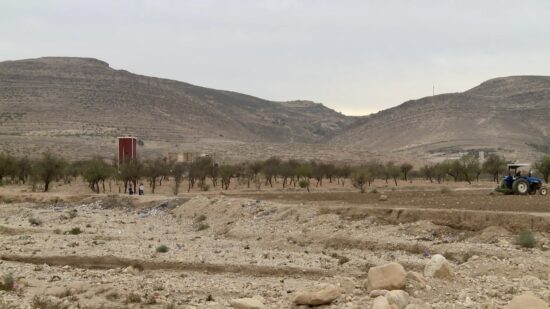 7 September 2022
7 September 2022What happens when development goes wrong in the MENA? Part 1
The MENA region has the fewest complaints to IAMs, and extremely low rates of those complaints reaching outputs from the process. Our upcoming report, Our Last and Only Resort, set to launch next week, details important findings about why complaints in the MENA region fall short relative to other regions. The report draws on research from 20 years of complaint and project data, and nearly a dozen interviews with groups in the MENA about their experiences in IAM complaint processes. This article provides a look at the complaint and project data that first waved a red flag about the implications of uneven IAM complaints for communities experiencing harm from projects in the MENA. -
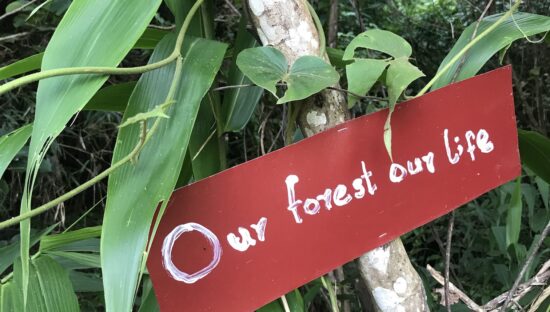 1 August 2022
1 August 2022What Accountability Mechanisms Tell Us About Greenwashing
Many projects claim to help the environment, but what kinds of harmful impacts are hidden beneath the guise of eco-friendly objectives? -
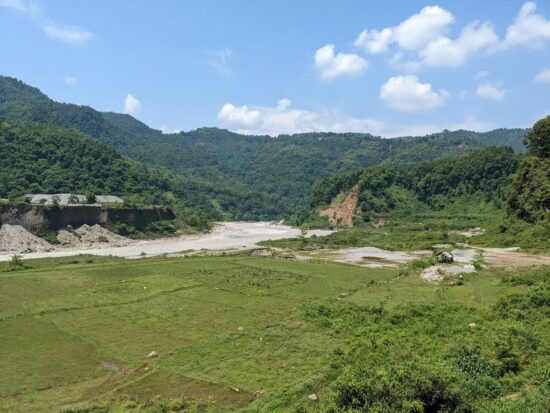 5 July 2022
5 July 2022Infrastructure Complaints in South and Southeast Asia
167 complaints have been filed about infrastructure projects in South and Southeast Asia. What can they tell us about types of community harm, the role of private and bilateral investment, and the increasing presence of Chinese finance in the region and around the world? -
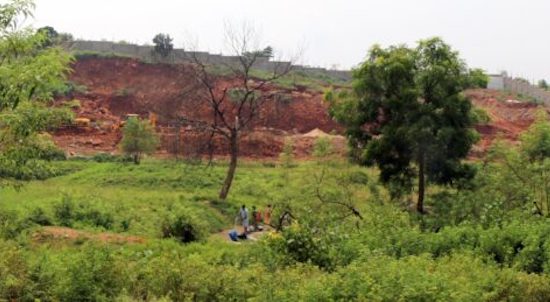 17 June 2022
17 June 2022Understanding Community Harm Part 6: Cultural Heritage
Individuals, communities, and NGOs file complaints to international finance institutions (IFIs) for harm caused by IFI-funded development projects. In compiling these complaints into the Accountability Console database, our research team tries to ascertain and categorize the issues or concerns raised for each complaint. Of all these complaints, six percent detail… -
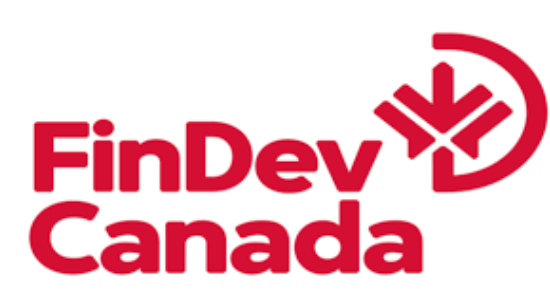 8 June 2022
8 June 2022Accountability Counsel Commends Draft FinDev Canada Accountability Framework and Calls for Additional Accessibility Measures
FinDev Canada, Canada’s development finance institution, recently held consultations on draft procedures for its new independent accountability mechanism. Accountability Counsel provided comments on the document, and commends FinDev Canada for developing a robust accountability framework. -
 7 June 2022
7 June 2022AC Calls for New U.S. National Action Plan on Responsible Business Conduct to Champion Accountability and Remedy
Accountability Counsel and Inclusive Development International recently submitted recommendations to ensure that accountability and remedy are key components of the revised U.S. National Action Plan on Responsible Business Conduct. -
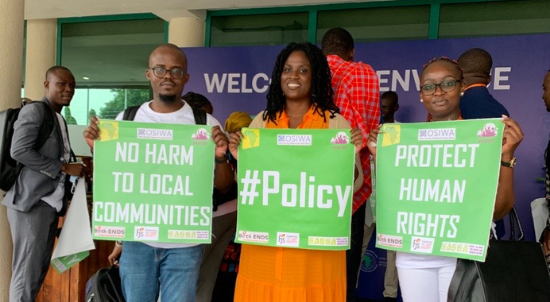 27 May 2022
27 May 2022“Stop funding projects exacerbating climate change and human rights violations”
Civil society organizations are calling on the African Development Bank (AfDB) to stop funding projects that exacerbate the climate crisis, damage the environment, and cause human rights violations. This call is being particularly amplified this week as the AfDB is holding its Annual Meetings in Accra, Ghana But communities most affected by the impacts of climate change, and civil society groups supporting them, will not have a seat at the table. Once again, crucial decisions on multi-million-dollar projects affecting their lives will be made without them. -
 27 May 2022
27 May 2022« Non au financement des projets aggravant le changement climatique et les violations des droits humains »
Les organisations de la société civile exhortent la Banque Africaine de Développement (BAD) à mettre fin au financement des projets qui exacerbent le changement climatique, nuisent à l’environnement et causent des violations des droits humains. Cette doléance est réitérée cette semaine lors des Assemblées Annuelles organisées par la banque à Accra, au Ghana. -
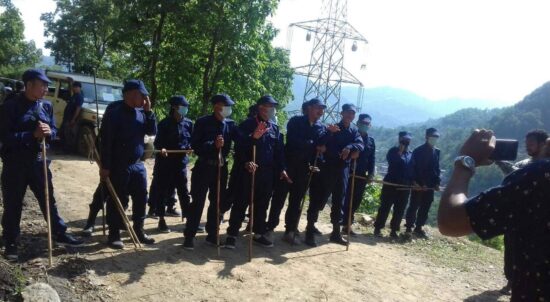 16 May 2022
16 May 2022The European Investment Bank must walk the talk and uphold its zero-tolerance policy on reprisals against communities in Lamjung District, Nepal
Members of FPIC and Rights Forum, a network of Indigenous and local communities who have been affected by the development of a transmission line project in Lamjung District, Nepal, demand that the European Investment Bank stop turning a blind eye to human rights violations associated with the project and follow through with its commitments on protection and sustainable development. -
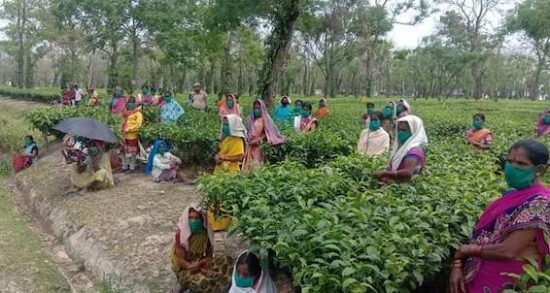 2 May 2022
2 May 2022Understanding Community Harm Part 5: Livelihoods
Nearly one out of five of all complaints filed to accountability offices raise issues related to livelihoods. We use two separate coal power plants based in Gujarat, India and Bargny, Senegal as case studies of how communities fight for the restoration of their livelihoods. -
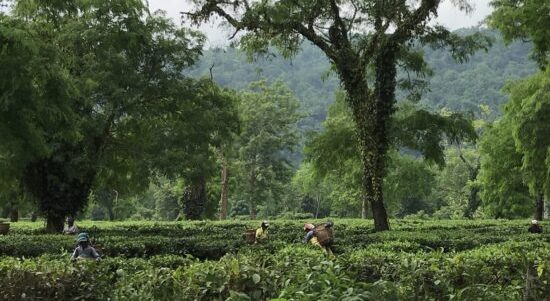 26 April 2022
26 April 2022Nothing Has Changed About the IFC’s Responsibility to Remedy Harm from Its Projects
Yesterday, the U.S. Supreme Court declined to hear an appeal from Indian fishing communities who sued the International Finance Corporation over environmental and livelihood damage caused by an IFC-financed coal power plant. While the Supreme Court’s decision means that the communities’ legal case in the United States may be over, it does not mean that the IFC can walk away from its responsibility to ensure that harms to this community – and other communities impacted by IFC financing – are effectively remediated. -
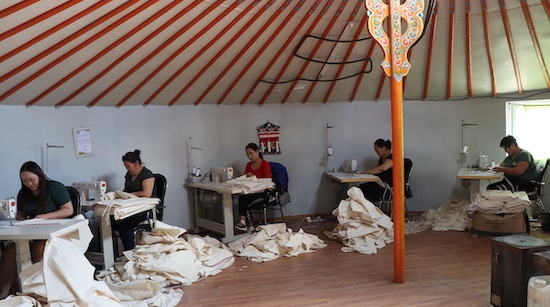 4 April 2022
4 April 2022IAM Complaint Stages: Dispute Resolution
Dispute resolution processes can be an opportunity for communities to reach creative solutions to the harm they are facing from development projects. But how often do they result in agreements, and how often do these agreements result in real remedy? -
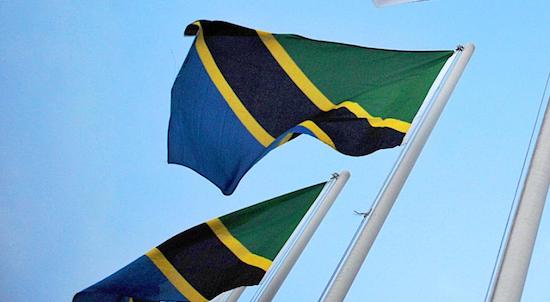 23 March 2022
23 March 2022Tanzania: Expedite Protections for Girls’ Education
Tanzania’s pledge to adopt guidelines to ensure that schools ensure adolescent mothers can return to schools by June 2022 is an important turning point for girls’ education, Human Rights Watch and Accountability Counsel said today. On March 8, the Tanzanian government and the World Bank had published their agreement to restructure Tanzania’s Secondary Education Quality Improvement Program (SEQUIP), financed by a US$500 million loan from the World Bank, to adopt new measures to effectively end a school ban against students who are pregnant or are mothers. -
 22 March 2022
22 March 2022Congress Pushes for Stronger Accountability for U.S. Government Development Activities: FY 22 Appropriations Round-up
This month, Congress passed its fiscal year 2022 legislation to fund the government, and in passing this legislation included a call to strengthen accountability for the U.S. government’s development activities abroad. We are pleased to see several of the recommendations that we submitted during the appropriations process incorporated in the explanatory statement and House report accompanying the legislation. -
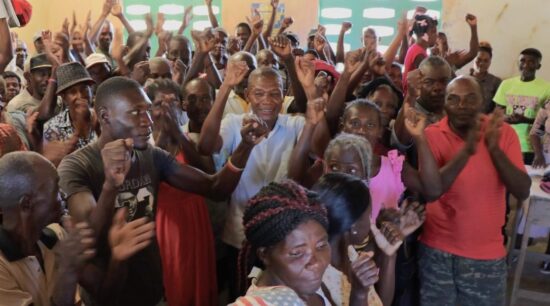 7 March 2022
7 March 2022Why Do Complaints Take So Long?
It takes an average of two years for a complaint to produce outputs. What takes so much time, and how long is too long? -
 25 February 2022
25 February 2022EU Due Diligence Proposal Requires Companies to Create Complaints Procedures: What It Means and Why It Matters
On February 23, in response to a set of recommendations on “Corporate Due Diligence and Corporate Accountability” adopted by the European Union Parliament a year prior, the European Commission released a proposal for an EU-wide directive on “Corporate Sustainability Due Diligence.” The primary objective of the proposal is to impose due diligence requirements on EU companies to prevent and respond to environmental and social harm. One of the due diligence requirements in the European Commission’s proposal is for companies that meet size and financial turnover prerequisites to establish complaints procedures; investors and accountability advocates alike should embrace this directive. -
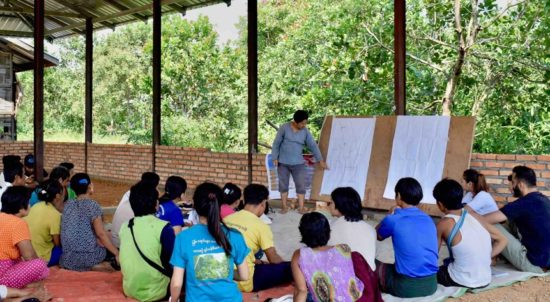 10 February 2022
10 February 2022Why DFI Clients Should Tell Communities about Accountability Mechanisms
Accessibility is one of the key criteria for an effective accountability mechanism, but people can’t access a mechanism they don’t know exists. Too often, communities harmed by international development finance are not informed about the accountability mechanisms available to address their grievances. One simple but significant way to make accountability… -
 7 February 2022
7 February 2022Shadow Eligibility Barriers
One in ten complaints meet all eligibility criteria to advance to a substantive stage, but never do. What happens to them? -
 1 February 2022
1 February 2022New UN Report Confirms Remedy Gap in Development Finance
On February 1, 2022, the Office of the United Nations High Commissioner for Human Rights (OHCHR) published an advance version of Remedy in Development Finance: Guidance and Practice (and launched a final version on February 23*), an expansive and in-depth look at whether development finance institutions (“DFIs”) remedy environmental and… -
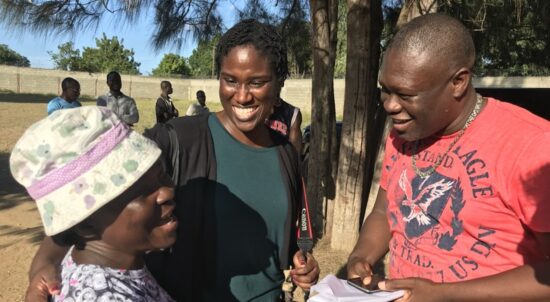 28 January 2022
28 January 2022Haitian Farmers Begin Receiving Compensation, Demanding Swift Progress
In 2018, we shared groundbreaking news that communities we support in Haiti had reached an historic agreement to remedy harm. After three years of implementation, we are sharing an update tracking both the significant gains and the challenges still to be overcome to ensure that the agreement on paper leads to meaningful changes for the families who were harmed.

